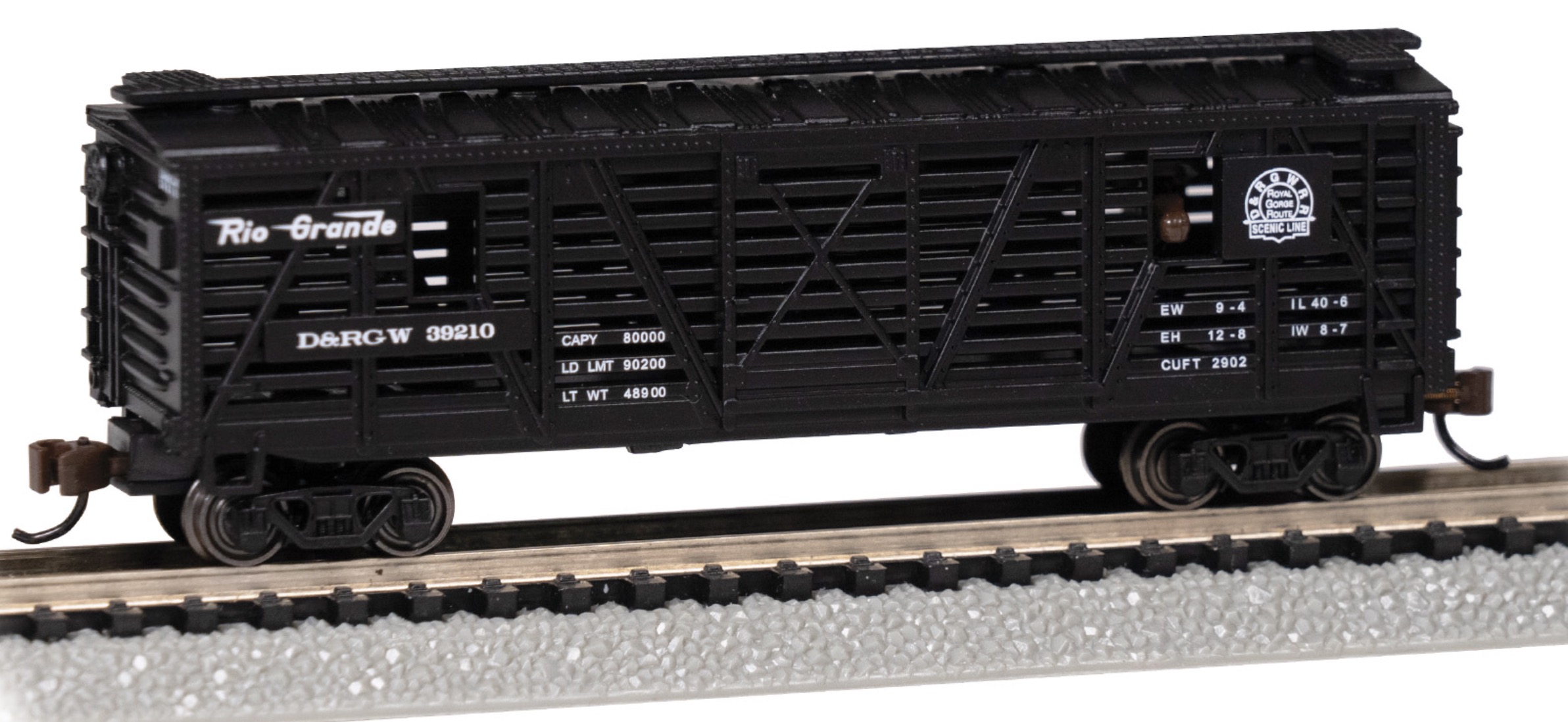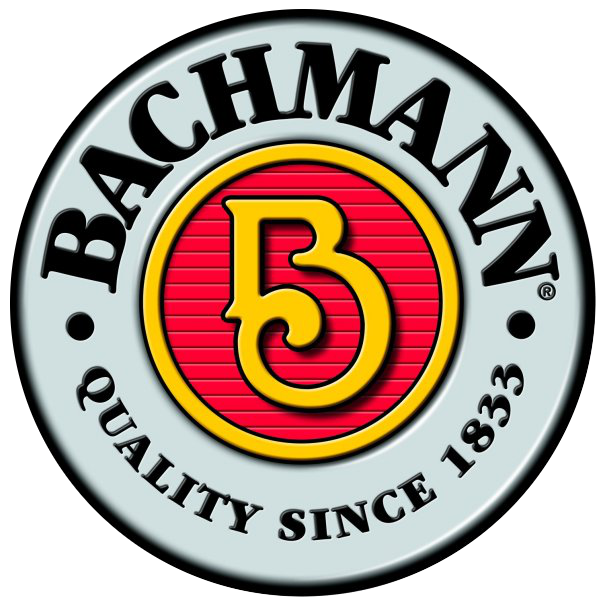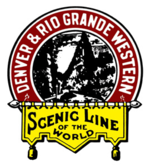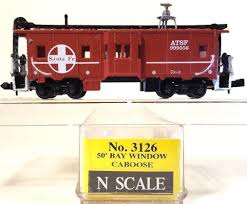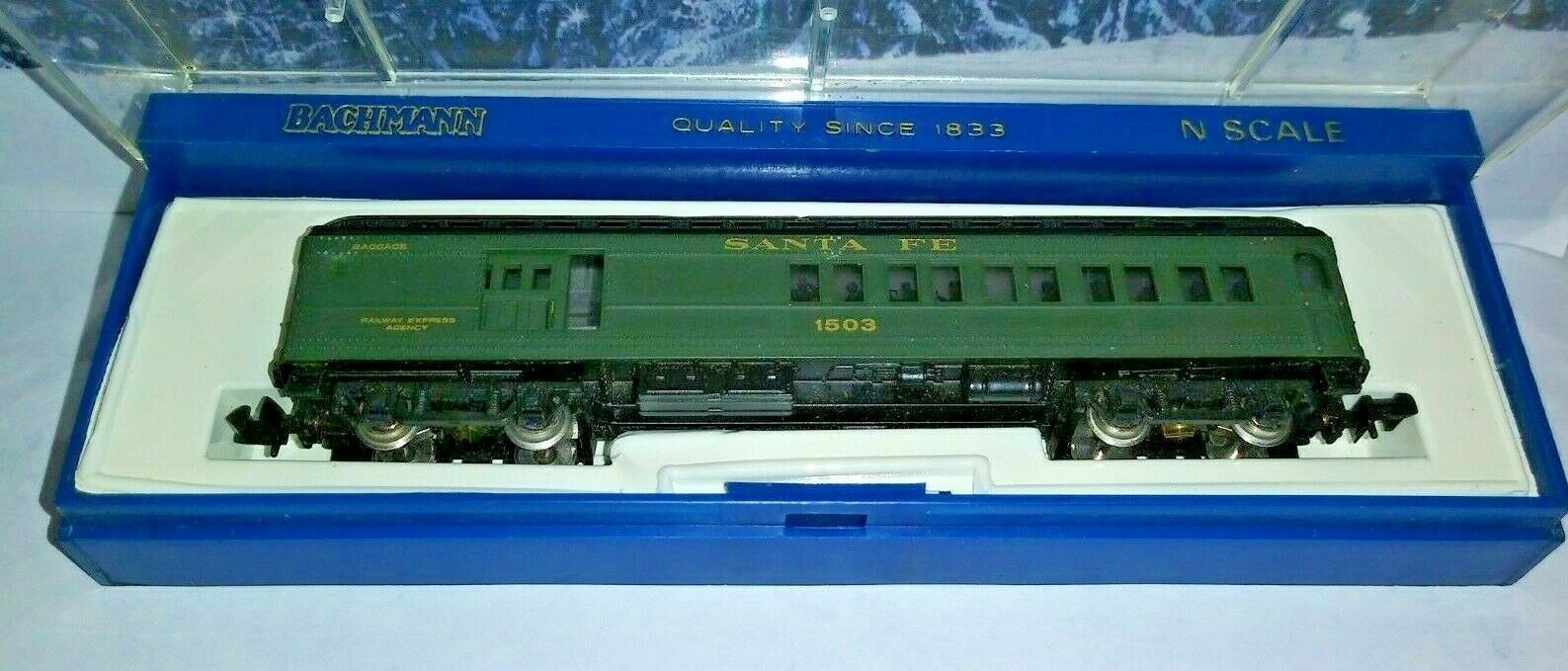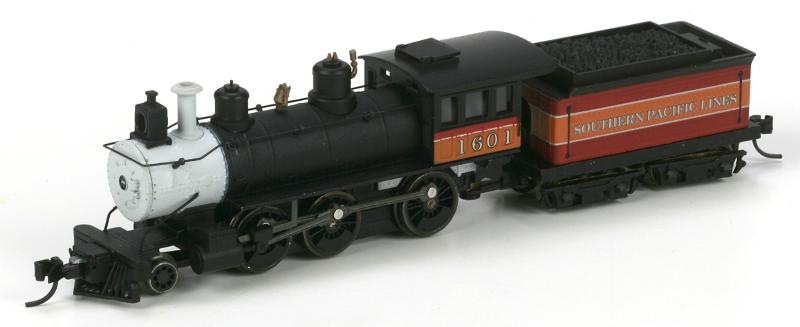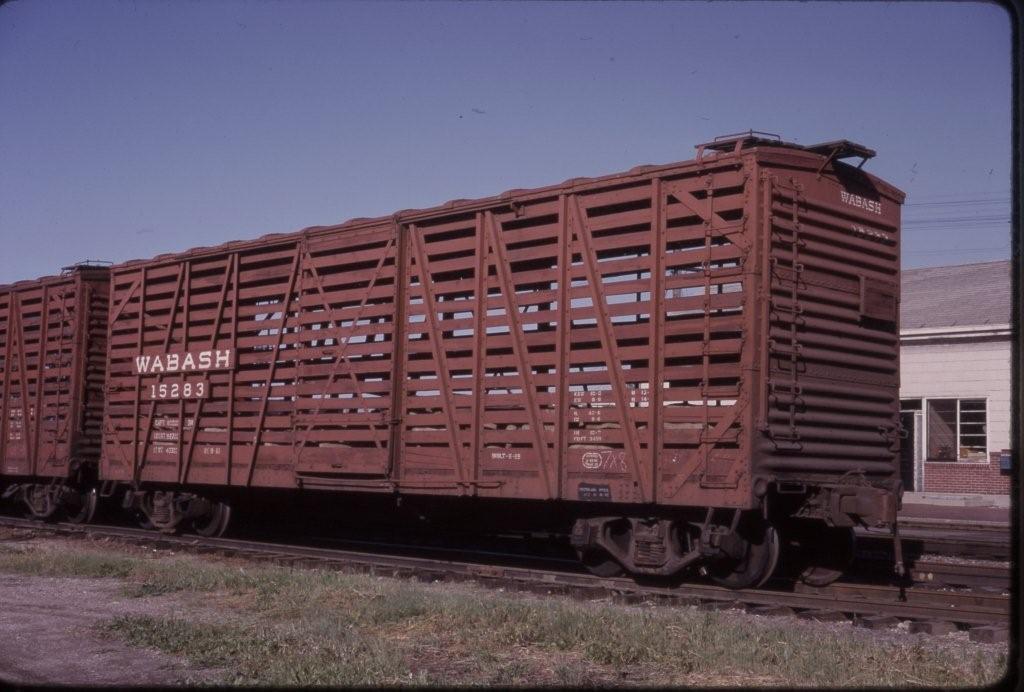Prototype History: Alonzo Mather, a Chicago clothing merchant who founded the Mather Stock Car Company, designed a new stock car in 1880 that was among the first to include amenities for feeding and watering the animals while en route. Mather was awarded a gold medal in 1883 by the American Humane Association for the humane treatment afforded to animals in his stock cars. Minneapolis' Henry C. Hicks patented a convertible boxcar/stock car in 1881, which was improved in 1890 with features that included a removable double deck. George D. Burton of Boston introduced his version of the humane stock car in 1882, which was placed into service the following year. The Burton Stock Car Company's design provided sufficient space so as to allow the animals to lie down in transit on a bed of straw.
Steel stock cars were in general use after the Second World War when steel became readily available.
From Wikipedia
Steel stock cars were in general use after the Second World War when steel became readily available.
From Wikipedia
Road Name History: The Denver & Rio Grande Western Railroad (reporting mark DRGW), often shortened to Rio Grande, D&RG or D&RGW, formerly the Denver & Rio Grande Railroad, was an American Class I railroad company. The railroad started as a 3 ft (914 mm) narrow gauge line running south from Denver, Colorado in 1870. It served mainly as a transcontinental bridge line between Denver, and Salt Lake City, Utah.
In 1988, the Rio Grande's parent corporation, Rio Grande Industries, purchased Southern Pacific Transportation Company, and as the result of a merger, the larger Southern Pacific Railroad name was chosen for identity. The Rio Grande operated as a separate division of the Southern Pacific, until that company was acquired by the Union Pacific Railroad. Today, most former D&RGW main lines are owned and operated by the Union Pacific while several branch lines are now operated as heritage railways by various companies.
In 1988, the Rio Grande's parent corporation, Rio Grande Industries, purchased Southern Pacific Transportation Company, and as the result of a merger, the larger Southern Pacific Railroad name was chosen for identity. The Rio Grande operated as a separate division of the Southern Pacific, until that company was acquired by the Union Pacific Railroad. Today, most former D&RGW main lines are owned and operated by the Union Pacific while several branch lines are now operated as heritage railways by various companies.
Brand/Importer Information: Bachmann Industries (Bachmann Brothers, Inc.) is a Bermuda registered Chinese owned company, globally headquartered in Hong Kong; specializing in model railroading.
Founded in Philadelphia, Pennsylvania, the home of its North American headquarters, Bachmann is today part of the Kader group, who model products are made at a Chinese Government joint-venture plant in Dongguan, China. Bachmann's brand is the largest seller, in terms of volume, of model trains in the world. Bachmann primarily specializes in entry level train sets, and premium offerings in many scales. The Spectrum line is the high quality, model railroad product line, offered in N, HO, Large Scale, On30, and Williams O gauge all aimed for the hobbyist market. Bachmann is the producer of the famous railroad village product line known as "Plasticville." The turnover for Bachmann model trains for the year ended 31 December 2006 was approximately $46.87 million, a slight increase of 3.36% as compared to 2005.
Founded in Philadelphia, Pennsylvania, the home of its North American headquarters, Bachmann is today part of the Kader group, who model products are made at a Chinese Government joint-venture plant in Dongguan, China. Bachmann's brand is the largest seller, in terms of volume, of model trains in the world. Bachmann primarily specializes in entry level train sets, and premium offerings in many scales. The Spectrum line is the high quality, model railroad product line, offered in N, HO, Large Scale, On30, and Williams O gauge all aimed for the hobbyist market. Bachmann is the producer of the famous railroad village product line known as "Plasticville." The turnover for Bachmann model trains for the year ended 31 December 2006 was approximately $46.87 million, a slight increase of 3.36% as compared to 2005.
Item created by: CNW400 on 2022-11-10 15:57:06. Last edited by CNW400 on 2023-09-28 16:36:18
If you see errors or missing data in this entry, please feel free to log in and edit it. Anyone with a Gmail account can log in instantly.
If you see errors or missing data in this entry, please feel free to log in and edit it. Anyone with a Gmail account can log in instantly.


